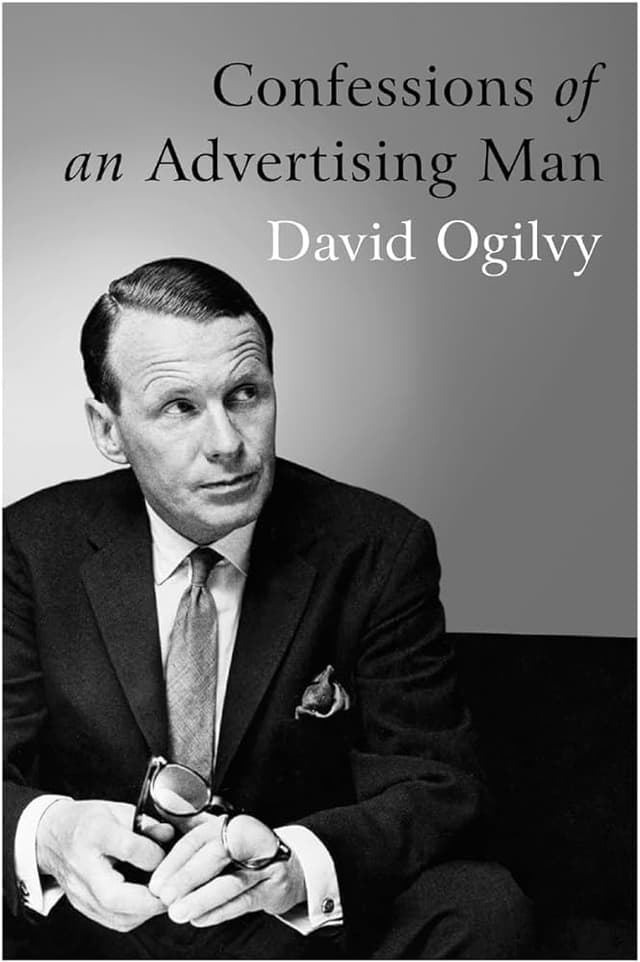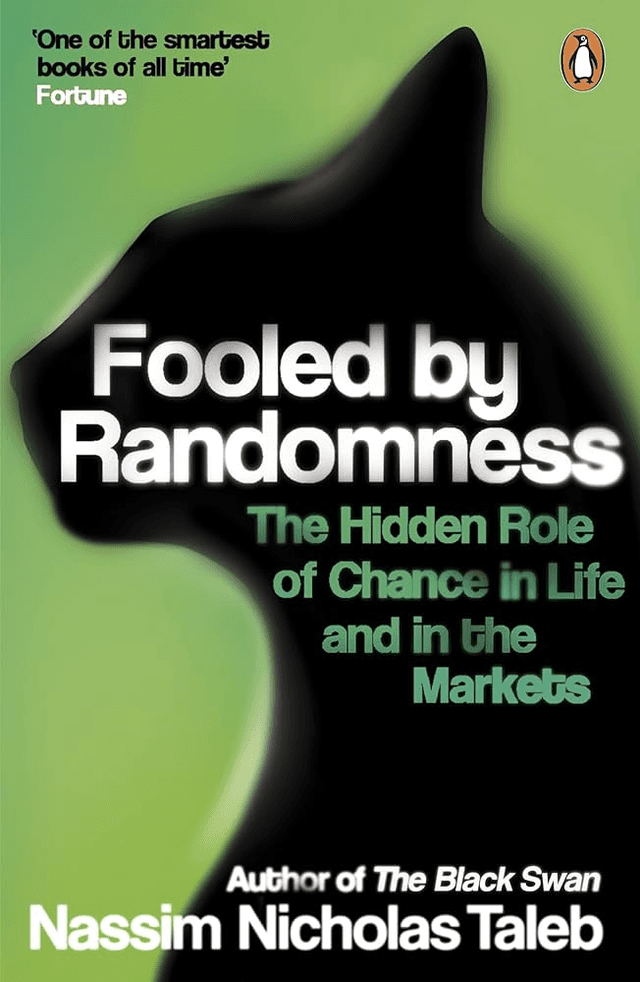Confessions of an Advertising Man vs. Fooled by Randomness
Confessions of an Advertising Man
David Ogilvy was considered the "father of advertising" and a creative genius by many of the biggest global brands. First published in 1963, this seminal book revolutionized the world of advertising and became a bible for the 1960s ad generation. It also became an international bestseller, translated into 14 languages. Fizzing with Ogilvy's pioneering ideas and inspirational philosophy, it covers not only advertising, but also people management, corporate ethics, and office politics, and forms an essential blueprint for good practice in business.
Fooled by Randomness
"Fooled by Randomness" is a thought-provoking book by Nassim Nicholas Taleb that delves into the role of chance in our lives and how we often mistake random events for meaningful patterns. Through a mix of personal anecdotes, philosophical insights, and statistical analysis, Taleb explores how randomness affects the world of finance, business, and daily life. The book challenges readers to rethink their perceptions of success, failure, and the forces that drive outcomes. This book is ideal for readers interested in finance, probability, and the philosophical implications of randomness.

Reviews
Reviews
| Item | Votes | Upvote |
|---|---|---|
| Advertising Bible | 1 |
| Item | Votes | Upvote |
|---|---|---|
| No cons yet, would you like to add one? | ||
| Item | Votes | Upvote |
|---|---|---|
| Engaging storytelling | 1 | |
| Thought-provoking concepts | 1 | |
| Insightful analysis on randomness and probability | 1 |
| Item | Votes | Upvote |
|---|---|---|
| Dense statistical discussions | 1 | |
| Can be repetitive | 1 | |
| Requires careful reading to fully grasp concepts | 1 |
Frequently Asked Questions
'Confessions of an Advertising Man' by David Ogilvy is considered a foundational text in advertising, providing insights into effective advertising strategies, corporate ethics, and people management. In contrast, 'Fooled by Randomness' by Nassim Nicholas Taleb focuses on the impact of chance and randomness in business and finance, challenging conventional perceptions of success. If you're looking for practical advertising wisdom, Ogilvy's book is more suitable, while Taleb's work is better for understanding the philosophical implications of randomness in business.
'Fooled by Randomness' is noted for its engaging storytelling and thought-provoking concepts, making complex ideas about randomness accessible to readers. On the other hand, 'Confessions of an Advertising Man' is more of a straightforward guide to advertising principles. If you prefer a narrative style that weaves personal anecdotes with philosophical insights, Taleb's book may be more appealing.
'Fooled by Randomness' can be challenging due to its dense statistical discussions and the need for careful reading to fully grasp its concepts. It may also feel repetitive at times. In contrast, 'Confessions of an Advertising Man' is generally more accessible and straightforward, making it easier for readers to digest its content. Therefore, if you're looking for a less challenging read, Ogilvy's book is the better choice.
'Confessions of an Advertising Man' is a seminal book written by David Ogilvy, widely regarded as the 'father of advertising.' First published in 1963, the book revolutionized the advertising world and became a bible for the 1960s ad generation. It covers a wide range of topics including advertising, people management, corporate ethics, and office politics, and serves as an essential blueprint for good practice in business.
The pros of 'Confessions of an Advertising Man' include its status as an 'Advertising Bible,' offering pioneering ideas and an inspirational philosophy that has influenced many in the advertising industry. No cons have been listed by users so far.
David Ogilvy is considered the 'father of advertising' and a creative genius by many of the biggest global brands. He revolutionized the advertising industry with his pioneering ideas and inspirational philosophy, which he detailed in his seminal book, 'Confessions of an Advertising Man.'
'Fooled by Randomness' is a thought-provoking book by Nassim Nicholas Taleb that delves into the role of chance in our lives and how we often mistake random events for meaningful patterns. Through a mix of personal anecdotes, philosophical insights, and statistical analysis, Taleb explores how randomness affects the world of finance, business, and daily life. The book challenges readers to rethink their perceptions of success, failure, and the forces that drive outcomes. This book is ideal for readers interested in finance, probability, and the philosophical implications of randomness.
Nassim Nicholas Taleb is a renowned essayist, scholar, and former trader known for his work on probability, uncertainty, and randomness. He is the author of several influential books, including 'The Black Swan,' 'Antifragile,' and 'Skin in the Game.' Taleb's work often challenges conventional wisdom and explores the impact of rare and unpredictable events on financial markets and human behavior.
Pros of 'Fooled by Randomness' include engaging storytelling, thought-provoking concepts, and insightful analysis on randomness and probability. However, some readers may find the book's dense statistical discussions challenging, and it can be repetitive at times. Additionally, it requires careful reading to fully grasp the complex concepts presented.




















